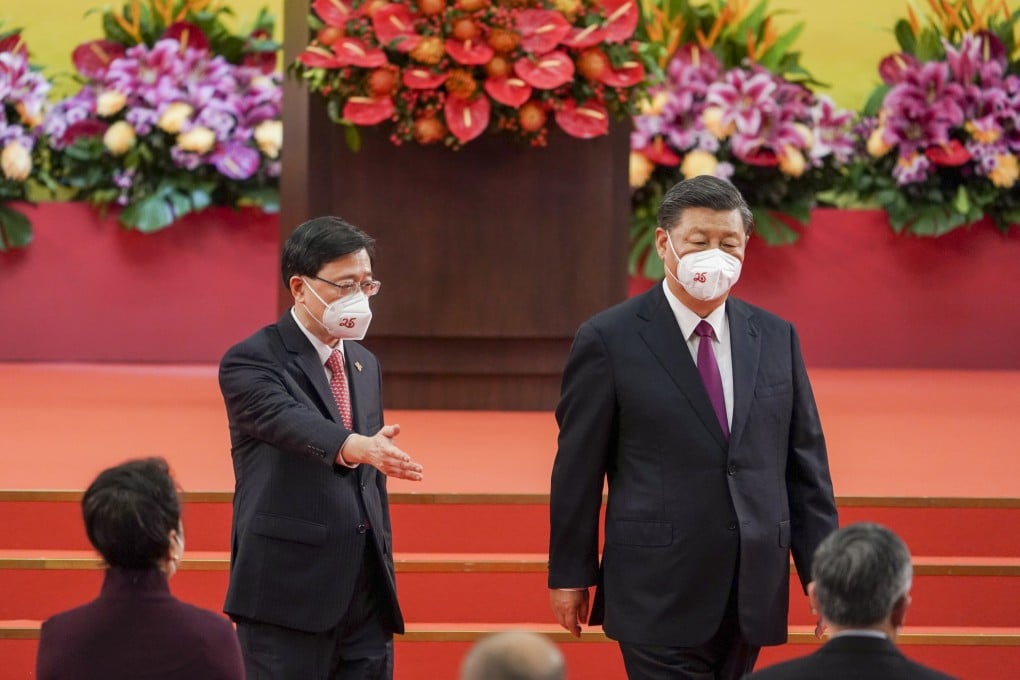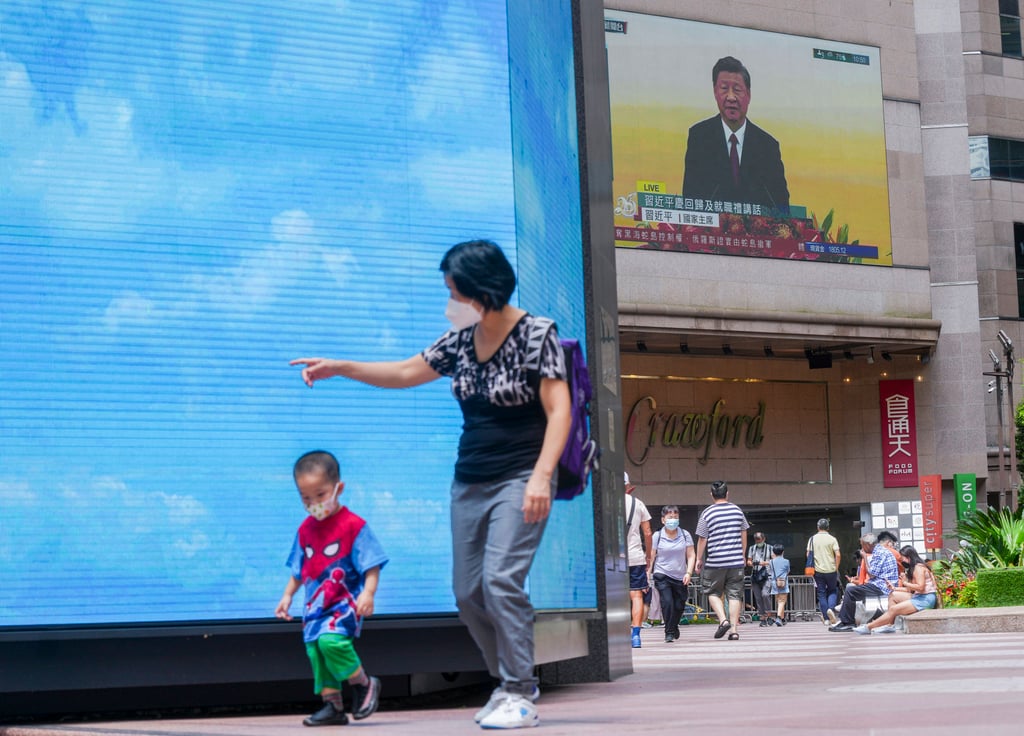Xi Jinping was talking to Hong Kong but also had a message for the world: the city will continue to enjoy its unique status, remain free and open, analysts say
- Hong Kong’s unique status, including its common law system, will be maintained under ‘one country, two systems’ formula, Xi says
- President aimed to send message to global community that Beijing attaches great importance to Hong Kong’s unique status and strengths, analyst argues

Chinese President Xi Jinping’s major speech in Hong Kong was directed not just at the city’s residents but also the international community, especially given it was his first trip outside mainland China since 2020, analysts said.
He was telling the wider world that contrary to the dire predictions by critics, Hong Kong’s unique status, including its common law system, would be maintained under the “one country, two systems” formula, they said.
They argued too that the president’s two-day visit to Hong Kong, which came a few months ahead of the Communist Party’s 20th congress this autumn, when Xi is expected to kick off his third term as leader, demonstrated the importance the central government attached to the city.

Lau Siu-kai, vice-president of semi-official think tank the Chinese Association of Hong Kong and Macau Studies, said it was the first time a state leader had openly endorsed the common law system in Hong Kong.
“The major audience of his reassuring messages are not Hong Kong people but the international community,” Lau said.
“In the past few years, some people in Western countries have been launching smearing campaigns against Hong Kong and even claim that the Chinese government is undermining the common law system in the city,” he said.
In June 2020, Beijing imposed the national security law on Hong Kong, banning acts of secession, subversion, terrorism and collusion with foreign forces. There have been concerns raised in Hong Kong about its impact not only on freedoms enjoyed by residents, but also the workings of the city’s courts.